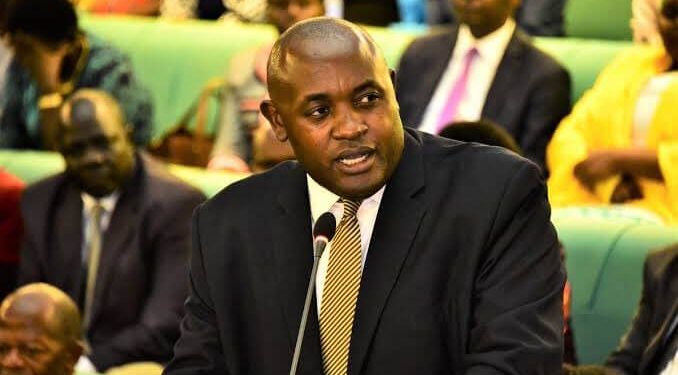Uganda’s coffee industry is under a blatant assault disguised as “rationalisation” by the government, aiming to merge the Uganda Coffee Development Authority (UCDA) into the Ministry of Agriculture. This is not about cutting costs or administrative efficiency; it’s about seizing control over one of Uganda’s most valuable resources and placing it in the hands of political profiteers and bureaucrats who couldn’t care less about the industry’s welfare.
Dr. Chris Baryomunsi, Minister of ICT and National Guidance, parades this plan as a harmless restructuring. He insists that the move is purely administrative and that the Ministry of Agriculture will oversee UCDA’s regulatory tasks. But Ugandans are not fooled by this empty rhetoric. This “rearrangement” is a smoke-filled backroom deal designed to strip the coffee sector of any autonomy, strangling the UCDA and throwing Uganda’s coffee sector into the abyss of governmental incompetence and corruption.
The true motives behind this hostile takeover become clearer when examining the vile tribal tactics allegedly employed to push this legislation through. Reports indicate Speaker Anita Among was allegedly caught on a hot mic, instructing National Resistance Movement (NRM) members to ensure “those Baganda don’t have the numbers.” Such brazen tribalism is repulsive, underscoring the depths to which government officials will stoop to consolidate control and eliminate opposition. This isn’t about Uganda’s coffee; it’s about power, greed, and manipulation.
Baryomunsi’s hollow promises that UCDA will still “do its tasks” under Agriculture’s oversight are laughable. Imagine expecting a bureaucratic behemoth to efficiently handle a sector as specialized as coffee—particularly when the Ministry of Agriculture has shown nothing but incompetence in managing its own core duties. UCDA’s independent status has been crucial to its success, enabling it to set standards, attract international investors, and safeguard Uganda’s coffee quality. Throwing it into the Ministry of Agriculture is akin to caging a lion and expecting it to still roar.
Then there’s the issue of money. Baryomunsi lamely justifies the merger by pointing to the government’s bloated salary expenditures, supposedly higher in agencies than ministries. But if the government were serious about saving money, they could start by trimming fat in the real areas of excess, like inflated salaries for NRM loyalists. The truth is that the coffee sector is not just any industry—it’s a lifeline for Uganda’s economy. It deserves dedicated, independent oversight, not some cheap political maneuvering disguised as financial responsibility.
Looming ominously over this takeover are whispers of foreign corporate interests, particularly with the Italian company Vinic’s murky proposals to take over parts of Uganda’s coffee value chain. Baryomunsi downplays this, assuring Ugandans that Vinic’s proposal “had nothing to do with UCDA rationalisation.” This is hard to swallow when Ugandans have seen the government bend over backwards for foreign corporations, often at the expense of local interests. How long before this government hands over control of the coffee sector entirely to foreign hands under the pretense of “investment” or “development”?
This shameful takeover is an attack on Uganda’s coffee farmers, the backbone of the industry. Absorbing UCDA into a ministry plagued with incompetence will only weaken Uganda’s position in the global coffee market, ultimately threatening the livelihoods of farmers who rely on UCDA’s guidance and support. This isn’t about saving money or administrative convenience; it’s a calculated power grab designed to dismantle Uganda’s coffee autonomy, all while lining the pockets of those in power.
Uganda’s coffee industry deserves better than to be used as a pawn in political games. This so-called rationalisation is nothing more than sabotage—a betrayal of Uganda’s hard-working coffee farmers and a dangerous step backward for the nation’s economic sovereignty.







Discussion about this post